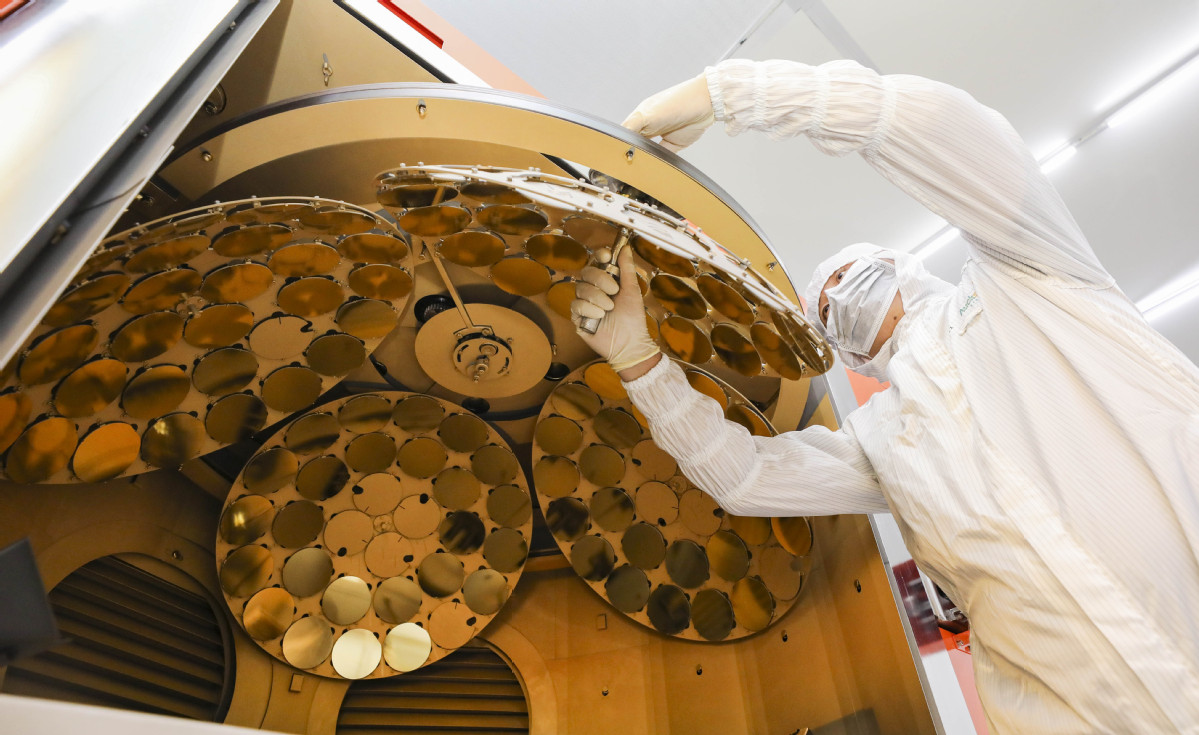Semiconductor industry to overcome challenges


Long-term growth to be achieved amid a harsher external environment
China's semiconductor industry will overcome challenges and achieve long-term, sustainable growth, according to officials, industry experts and company executives.
This prospect will be fueled by the huge domestic market, consistent input into research and development and the determination to achieve breakthroughs in core technologies, they said.
Amid a harsher external environment, including increasingly tightened export controls of chips to China by the United States, more efforts will be made to encourage domestic chip manufacturers to overcome technological hurdles while deepening cooperation with other countries, according to the industry observers.
As Microsoft co-founder Bill Gates predicted, Washington's restrictions have not only cost highly paid jobs in the US, but also spurred efforts by China to pursue self-sufficiency in crucial semiconductor technologies.
Shi Hongxiu, a professor of economics at the National Academy of Governance, said, "China can take full advantage of its super large market, which means the country has sufficient testing scenarios to verify its self-innovated technologies, lower its R&D costs, and escalate the pace of product output."
As the world's largest chip market, the Chinese mainland accounts more than half the world's semiconductors, which are then assembled into tech products to be re-exported or sold in the domestic market, according to the research company Daxue Consulting.
Shi said, "Greater importance should be attached to creating an ecosystem for innovation, instead of just focusing on one specific technological breakthrough.
"As long as we have the right channels to keep abreast of the world's leading technologies and cutting-edge knowledge, along with mutual learning among different populations, we will have numerous opportunities," he added.
Last month's tone-setting Central Economic Work Conference called for breakthroughs to be made in core technologies and also stressed the need to accelerate R&D and the application of cutting-edge technologies.
Wei Jianguo, a former vice-minister of commerce and vice-chairman of the China Center for International Economic Exchanges, said the conference again highlighted China's determination to focus on strategically important sectors such as semiconductors.
"The chip industry is known for being highly intensive in capital, talent and technology. These three factors are all needed to ensure its healthy development. We have to beef up our indigenous R&D push," Wei said.
Wang Jiangping, vice-minister at the Ministry of Industry and Information Technology, the nation's top industry regulator, said, "Persistent efforts are needed to tackle problems in crucial technologies."
One of the ministry's top priorities during the 14th Five-Year Plan (2021-25) period is to advance the modernization of industrial chains and encourage companies to develop core technologies such as high-end semiconductor equipment.
Local governments in areas such as Shanghai, Tianjin, and Guangdong and Zhejiang provinces have identified integrated circuits as one of their key industries during the 14th Five-Year Plan.
Last year, sales revenue in the Chinese chip design sector reached 534.57 billion yuan ($78.17 billion), up by 16.5 percent year-on-year and showcasing sectoral resilience amid US export restrictions, according to preliminary data from the China Semiconductor Industry Association, or CSIA.
The data proved what Gates predicted earlier. In an interview with Bloomberg in September 2020, he said that by forcing China to make its own chips, the US would not only give up highly paid jobs but would also force China to become self-sufficient.
























